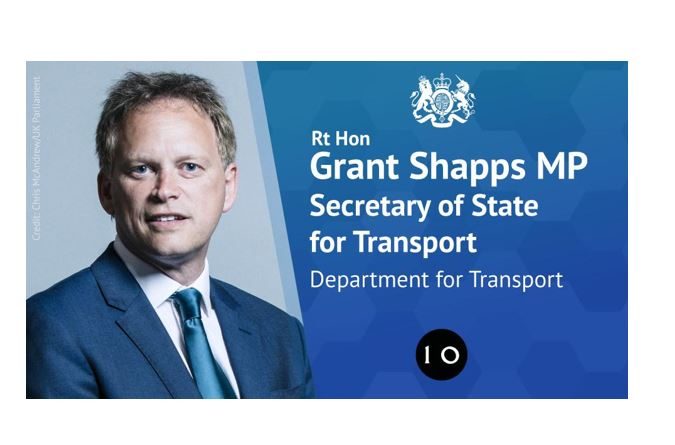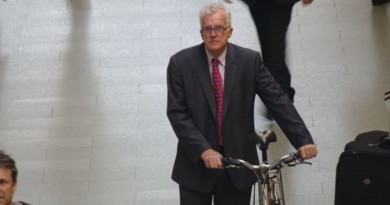Local authorities need to re-prioritise road space use, says Transport Sec
Transport Secretary Grant Shapps today told the Transport Committee that local authorities need to re-prioritise the way road space is used, with cycling and walking at the forefront.
Shapps went on to say that in the short-term the focus will be on protecting the public transport system as the UK moves out of lockdown, and people should walk, cycle, and then drive, with using public transport as a last resort.
Challenged on the recent rise in road traffic levels to 70% of pre-covid levels, and the concern that telling people to avoid public transport will actually lead to more people driving than prior to the lockdown, Shapps acknowledged he was conscious of this point but that protecting the public transport sector was of paramount importance, even if this leads to a spike in road traffic usage.
“In the short term, the most important thing is protecting the transport network so it is only used by those who need to, and so we can maintain social distancing,” he said.
A perfect opportunity, it would seem, for further resources and funding to be allocated to the provision of more permanent cycling infrastructure and means of accessibility for people to choose cycling as their primary way of getting around. Confirming this, a recent survey by Cycling UK revealed more than a third of UK respondents said they could ditch their cars in favour of cycling post-Covid.
On 9th May the Government announced £2bn for cycling and walking, with £250m immediately available for the installation of temporary, pop-up measures to aid social distancing.
“I think we have done this with some success,” Shapps continued. “We have seen a more than 100% increase in people cycling during the height of lockdown, but the trick is to keep this going, which requires more than the large sums of money we’re putting in. It also requires a change in culture.”
The money is a good start, of course, but as Shapps says himself there is far more that needs to be done in order to ‘lock in’ this change in attitude towards cycling in order to keep people on their bikes throughout and after the Covid recovery. A recent poll found the majority of Londoners support moves to give more space to pedestrians and cyclists.
Questioned by MP Ruth Cadbury on the amount of time some of these temporary measures and safes spaces are taking to be put in place, Shapps gave a somewhat vague account of the different measures that had already been implemented and seen success during the lockdown, and placed emphasis on re-prioritising the way local authorities use road space.
“What makes people cycle is it being easy to grab a bike, and the space to cycle,” he answered. “I was pleased to see immediately a number of local authorities reacting to this, such as in London the new cycle lane along Hyde Park. We’ve been working on being able to speed this us, and the chances are we have been pretty successful.
“We want to make sure we are re-prioritising the way local authorities use road space; we want cycling and walking, and possibly e-Scooters, at the forefront, then driving as the second option.”
Shapps was also quizzed on the progress of the Government’s £50 voucher repair scheme.
“It will launch by the end of June,” he confirmed. “But we do have a problem. There is a massive waiting list for everything to do with bikes including buying and servicing, and there is this genuine shortage due to Covid-19. Although we’re putting £25 million into this scheme, we won’t be able to release them onto the market at once as there isn’t capacity in the system.
“Now is the time for people to offer up their services, but you do need to show a level of competence before you claim to be a bike fixer. The first few vouchers will go online but they won’t be open-ended as we need to prevent the bike network being completely overwhelmed.”
On the topic of novice, low-confidence riders, Shapps said his aim was to roll out the Bikeability scheme, which aimed to give 50% of primary school children access to cycle training, to all children in England. He also said he wished to extend the Bikeability cycle training to inexperienced and novice adults in order to improve confidence on the roads.



